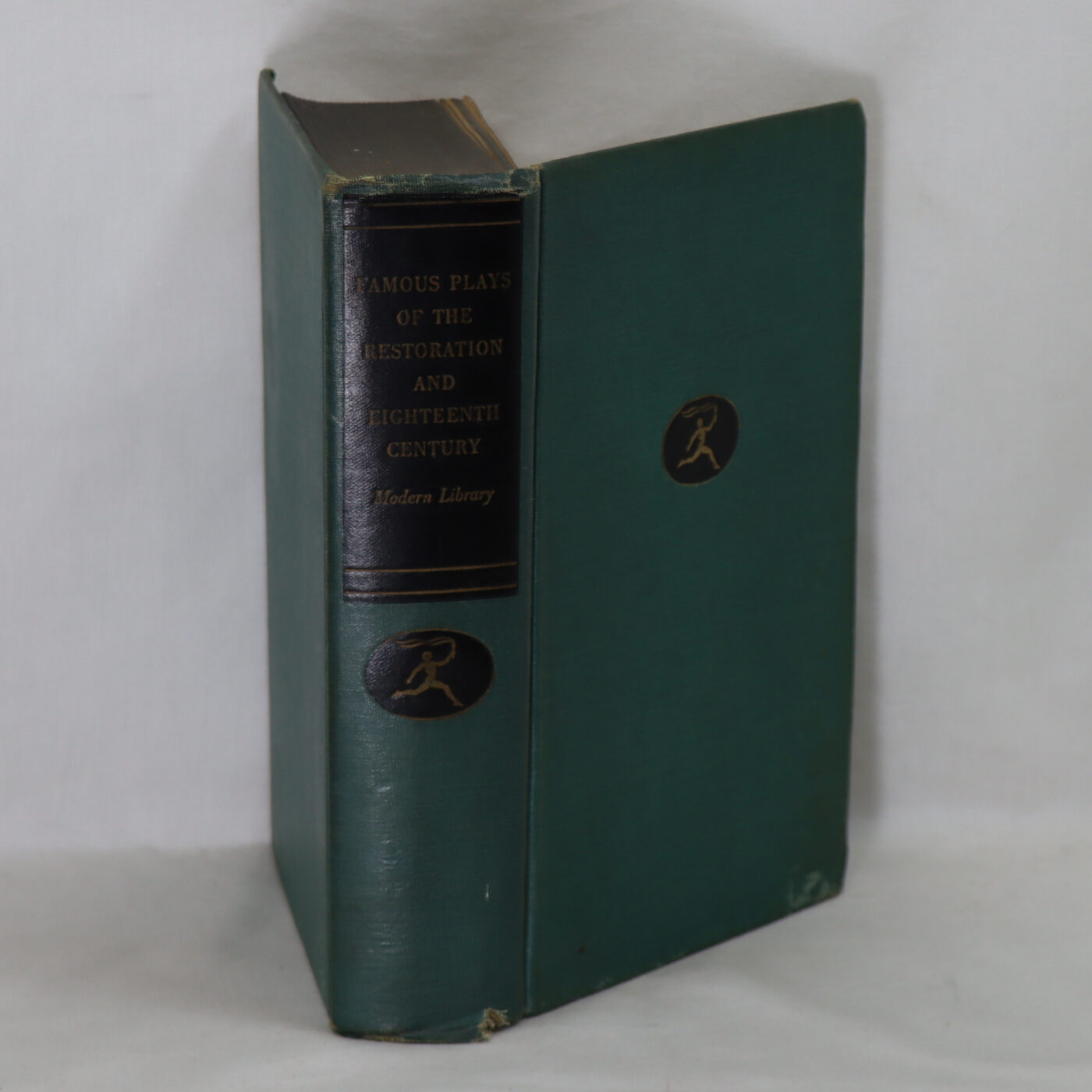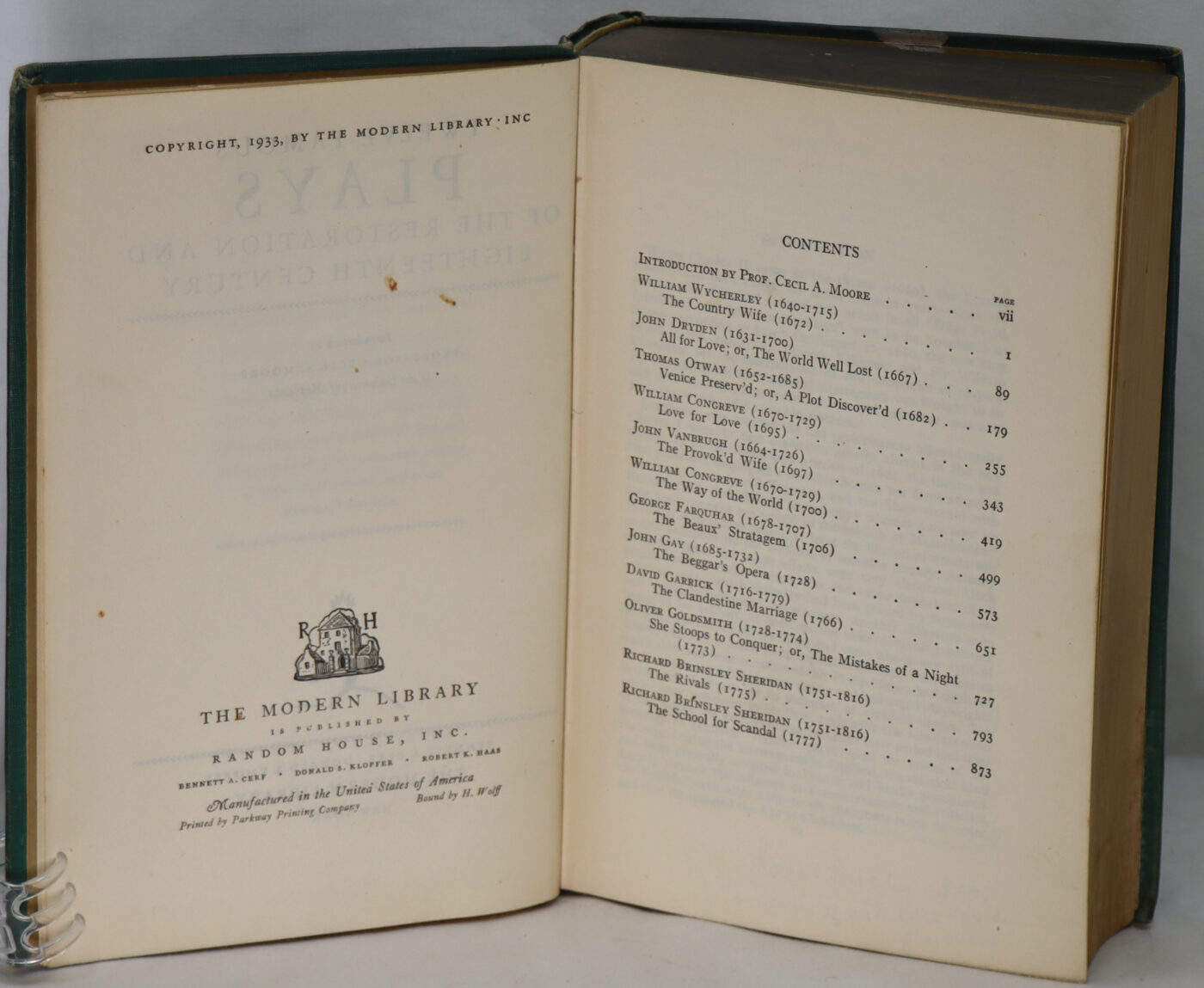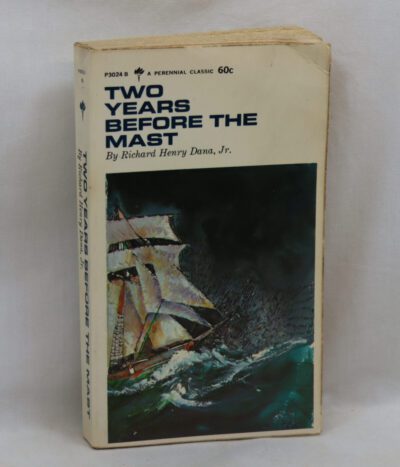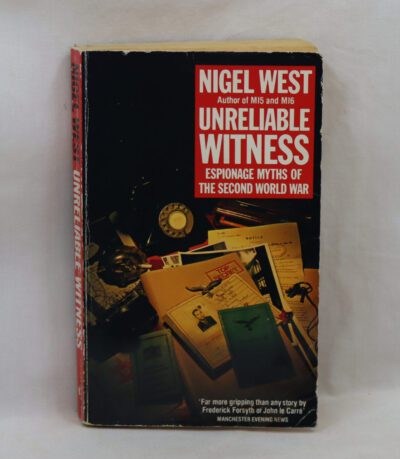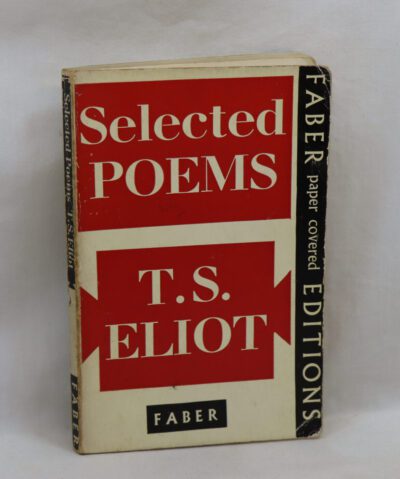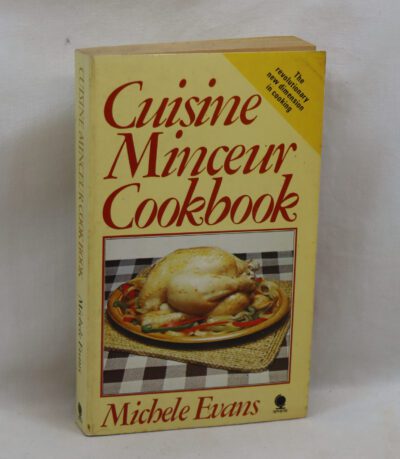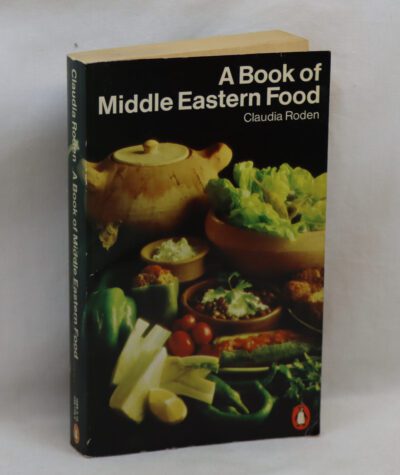Famous Plays of the Restoration and Eighteenth Century.
Printed: 1993
Publisher: The Modern Library. New York
| Dimensions | 15 × 21 × 4 cm |
|---|---|
| Language |
Language: English
Size (cminches): 15 x 21 x 4
Condition: Good (See explanation of ratings)
Item information
Description
Hardcover. Green cloth binding with gilt title on the spine.
We provide an in-depth photographic presentation of this item to stimulate your feeling and touch. More traditional book descriptions are immediately available
- Note: This book carries a £5.00 discount to those that subscribe to the F.B.A. mailing list
For conditions, please view our photographs. A nice clean rare copy from the library gathered by the famous Cambridge Don, computer scientist, food and wine connoisseur, Jack Arnold LANG.
1st Edition. 952 pages Includes: The Country Wife; All for Love; or, The World Well Lost; Venice Preserv’d; or, A Plot Discover’d; Love for Love; The Provok’d Wife; The Way of the World; The Beaux’ Stratagem; The Beggar’s Opera; The Clandestine Marriage; She Stoops to Conquer; or, The Mistakes of a Night; The Rivals; The School for Scandal.
Backgrounds of English Literature, 1700-1760 was first published in 1953. The five studies collected in this volume have the common purpose of establishing a background for an understanding of eighteenth-century English literature. Some of the most popular ideas and ideals of the period are traced to their sources in contemporary philosophy, science, politics, and religion.All of the studies relate in some way to what the seventeenth century called the climate of opinion. They confirm the observation of Shelley that all writers are subjected to “a common influence which arises out of an infinite combination of circumstances belonging to the time in which they live.” All the studies belong to that older style of literary investigation to which scholarship owes its name and to which every student interested in basic ideas and the origins of concepts will sooner or later wish to turn.The first two studies, “Shaftesbury and the Ethical Poets” and “The Return to Nature in English Poetry of the Eighteenth Century,” throw as much light on the Romantic poetry of the nineteenth century as they do on the poetry of the eighteenth. The nature worship that one thinks of as peculiarly Wordsworthian is shown to lie at the heart of deism, the rationalistic philosophy of a century earlier.In “Whig Panegyric Verse,” the ideals of the Whig party, as expressed by poets of the time, are examined in relation to Shaftesbury’s moral philosophy. In “John Dunton: Pietist and Impostor,” the morbid gloom familiar in the “graveyard poets” is seen to reflect a widespread popular taste. That the melancholia of the period was so common as to be considered a national characteristic appears from “The English Malady,” which is largely concerned with the medical literature of the time.
Cecil A. Moore was an emeritus professor of English at the University of Minnesota. He edited several anthologies of eighteenth-century poetry and prose.
Want to know more about this item?
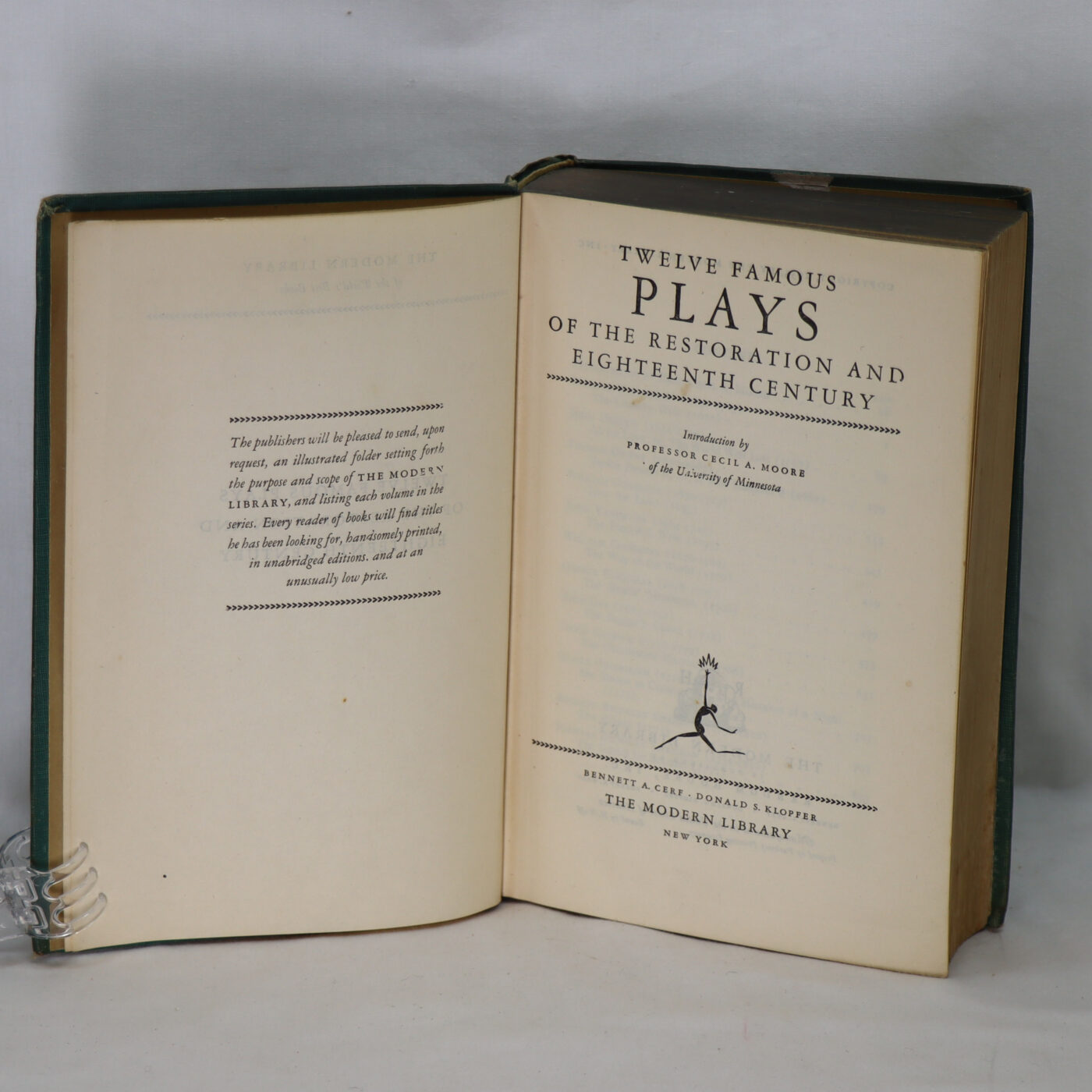
Related products
Share this Page with a friend

